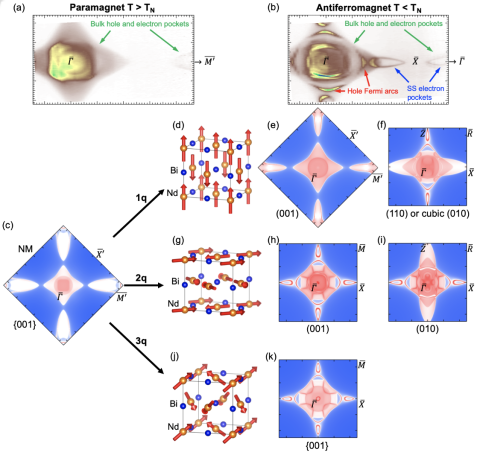
Scientific Achievement
First-principles calculations reveal that unconventional surface states can arise from band-folding hybridization gap in a topological antiferromagnet.
Significance and Impact
Spin-textured surface states are a hallmark of topological insulators and Weyl semimetals. Our results point to a new mechanism to generate these states which broadens the pool of materials useful for future spintronics applications.
Research Details
- Surface states are calculated for NdBi with multi-q AFM orders from density-functional theory and Wannier functions.
- Multi-q structures host Dirac and Weyl nodes.
- The calculated surface electron pockets and Fermi arc-like features with spin-texture agree with ARPES data but are found to originate from the band-folding hybridization gap formed from AFM order rather than from Weyl nodes.
L.-L. Wang, J. Ahn, R.-J. Slager, Y. Kushnirenko, B. G. Ueland, A. Sapkota, B. Schrunk, B. Kuthanazhi, R. J. McQueeney, P. C. Canfield, A. Kaminski, Commun Phys 6, 78 (2023). https://doi.org/10.1038/s42005-023-01180-6
